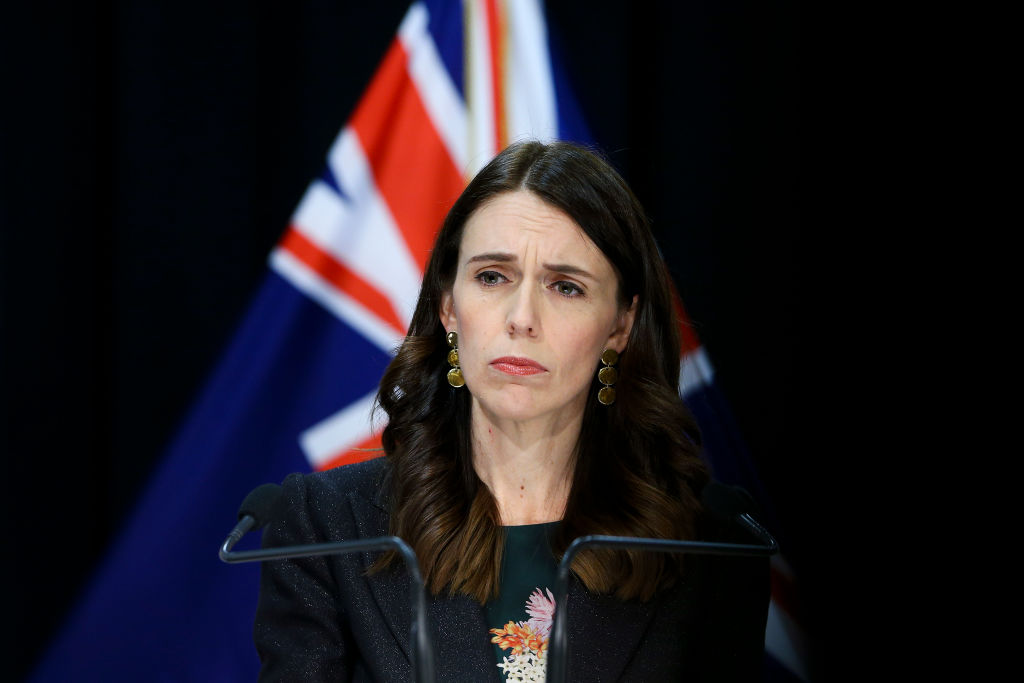A couple of days ago, Norway’s Prime Minister, Erna Solberg, was asked why countries with women leaders were having more success combating the coronavirus pandemic than their male counterparts. After all, Taiwan, New Zealand, Finland and Germany were all faring better than Brazil, or America, or the UK. Surely, the question implied, there was something special, something powerfully apt at this critical moment, about female leadership?
Solberg didn’t bite. She said her country, and others with female leaders, have ‘a little bit less testosterone and power politics’ and a more collective approach to political problem solving. She did not say that Norway’s success in dealing with the virus was all down to her gender.
This answer will be a disappointment in some quarters. During the season of the virus, journalists, scientists and officials all over the world have struggled to understand why some countries are handling the pandemic better than other countries. Clearly, this is a question of devilish complexity that precludes easy explanations.
Instead of confronting this complexity, in the last few weeks, commentators all over the world have been drawn to a simpler narrative. The successful countries, those with the fewest deaths, had something in common, many commentators pointed out. They were all led by women. Complex systems, epidemiological modeling, network effects — these explained little about the pandemic. What countries really needed to succeed were female leaders like Angela Merkel, Jacinda Ardern or Erna Solberg.
In 1840, the Scottish philosopher Thomas Carlyle gave a series of lectures in London. His topic was heroism. Carlyle offered his audience a purified vision of history. He told them that ‘the history of the world is but the biography of great men.’ The chaotic motions of the species through time could be attributed to unique men, endowed with superior intellect and courage, their actions divinely inspired and sanctioned. ‘Hero-worship,’ he said, ‘exists forever and everywhere.’ In the last few weeks his theory has returned with a vengeance.
It’s heroine worship now.
‘While there is insufficient data,’ announced a CNN op-ed in April, ‘to conclude that women world leaders are managing the COVID-19 pandemic more effectively, the emerging trends are hard to ignore. Jacinda Ardern, has been widely praised for her clear, bold and supportive approach… Angela Merkel, who has called for and established unity in the nation’s response to the virus. Taiwan and Norway’s national responses to this crisis have also proved to be effective to date, and they all have one thing in common — women leaders.’
Data? Who needs sufficient data when you have women leaders crushing the curve? Jeff Bezos’s Washington Post doesn’t need data. On April 20 it knew why some countries were flourishing: women. In a world dominated by frightening populists and generic macho claptrap-peddlers, it was heroic female world leaders who were ‘voices of reason’:
‘They have attracted praise for effective messaging and decisive action, in stark contrast to the bombastic approaches of several of the world’s most prominent male leaders — including some who face criticism for early fumbles that fueled the spread of the virus… Many women leaders have indeed been successful in controlling the spread of the coronavirus while also maintaining calm.’
Even as it emerged that poor little Belgium (run by a…woman) was having a disastrous virus, the heroine-worship continued. A battery of experts came forward to birth a unified field theory of Great Woman Coronavirus leadership. Two Canadian academics categorized the ‘new type of leadership’ as involving ‘resilience, courage, flexibility, empathy, collaboration, caring and recognition of collective contribution. These are all characteristics of traditionally feminine management.’
Heroic women were stopping the plague in its tracks. How? Was it because they led disproportionately wealthy, well-provisioned, less densely populated countries like the Nordics? Was it because they ran small, easy-to-shutdown islands like Taiwan or New Zealand? Was it because, unusually for a political leader, they had scientific training, like Angela Merkel? No. Women were stopping the virus through sheer turn of phrase. They communicated the curve into flattening. As one writer gushed over at Forbes:
‘Generally, the empathy and care which all of these female leaders have communicated seems to come from an alternate universe than the one we have gotten used to. It’s like their arms are coming out of their videos to hold you close in a heart-felt and loving embrace. Who knew leaders could sound like this? Now we do.’
Women could unlock this ability to project their arms out of video clips, because, in the words of one expert interviewed by Vox, they ‘come from a perspective that is different from the traditional sort of white guy’. This obsession with language terminated in a study last week by a British university. Researchers analyzed the ‘paternalistic’ language used by Boris Johnson and the ‘empathetic’ language used by Jacinda Ardern. They concluded that the ‘soft’ language of Ardern explained why New Zealand suffered less than the UK in the last few months. How the language choice of the two Prime Ministers affected the spread of the virus, which does not have ears, was not recorded. What matters is that Johnson is a man, and that Ardern is a woman.
The bedrock of the Great Woman theory is that female-led governments (a very small sample size indeed) have suffered six times fewer confirmed virus deaths than governments led by men. Whether the number is lower because these governments were led by women does not matter to our theorists. A cumbersome narrative has taken flight. Writers particularly enjoy contrasting the successes of female leaders with the failings of liberal bogeymen like Trump, Bolsonaro and Johnson. Merkel or Ardern do not have to appear ‘hypermasculine’, unlike Trump or Bolsonaro; being able to express their ‘vulnerability’ aids their countries efforts to stop the virus.
Contradictory data is ignored. For instance, Israel’s successful handling of the virus does not warrant a mention in any of the Great Woman articles I’ve read. Perhaps Bibi Netanyahu — the former special forces commando — is not as ‘hypermasculine’ as Donald Trump, the former owner of the Miss Universe pageant.
It is, of course, possible to play with the coronavirus data to reach all sorts of glib and under-evidenced conclusions. Countries run by soldiers, warlords and military authoritarians are managing the virus wonderfully. Take Vietnam, Eritrea, Myanmar, Burundi, Syria, Libya, Cambodia and Zimbabwe. That’s barely a thousand deaths between countries that govern millions of people. What could the magic secret of leaders like Pierre Nkurunziza and Nguyễn Phú Trọng be? Secret prisons? Armed militias? Will Vox be interviewing a professor of sociology somewhere to let us know? I hope so.
Vietnam is an especially interesting case, as Toby Young pointed out recently. With no recorded deaths from the virus it must rank — putting it in manly terms — as one of the winners of the Covidian Olympics. How was this achieved? Is a hologram of Merkel running the show in Hanoi? No. In January, Vietnam ignored the WHO’s advice that there was ‘no clear evidence of human-to-human transmission’ and introduced temperature screening for passengers arriving from Wuhan at Hanoi International Airport in early January. Travelers found with a fever were isolated and closely monitored. By February Vietnam had ceased all flights to and from China, and suspended visas for Chinese citizens. Since then, in a country of 97 million people, there have been just 328 confirmed cases.
Was this down to ‘resilience, courage, flexibility, empathy, collaboration, caring’ or not trusting the Chinese Communist party? Could that be more important than having a woman in charge? Here is Toby Young again:
‘Countries that started screening airline passengers arriving from Wuhan in early January have some of the lowest COVID death tolls of anywhere in the world — Hong Kong (four deaths), Taiwan (7), Singapore (23), Malaysia (115), Thailand (57) and Vietnam (0).’
***
Get a digital subscription to The Spectator.
Try a month free, then just $3.99 a month
***
Maybe not trusting China, or the WHO, was a factor in the last few weeks? Who could possibly know for sure?
A few months ago the coming of the plague was supposed to herald the return of the reality principle. It would shatter our illusions and wake us up. ‘Men have to return to reality,’ Carlyle once wrote, ‘they cannot live on semblance.’
He is wrong this time. Instead, as the Great Woman Theory of virus leadership demonstrates, plenty of people are spending this moment retreating further and further into fantasy.


















